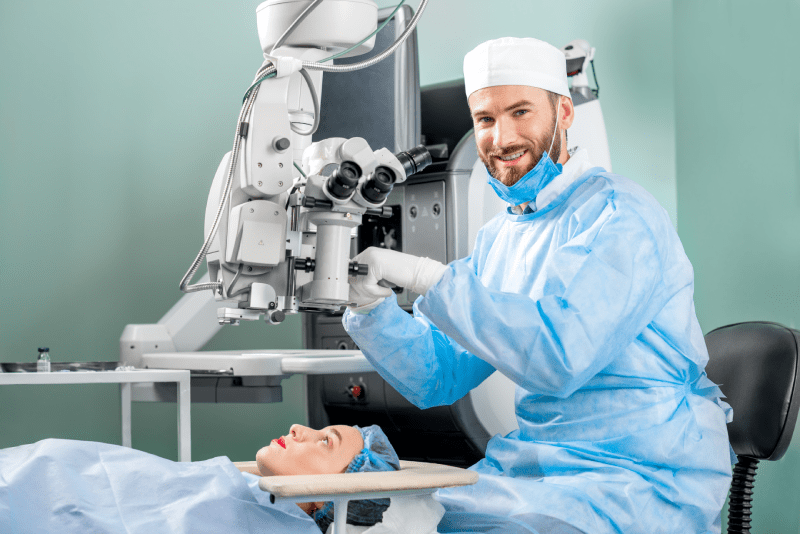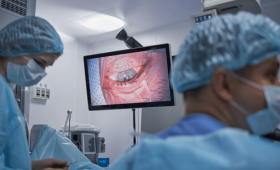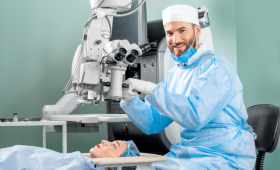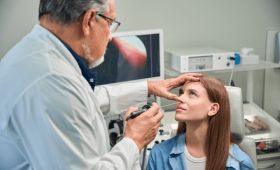What Is The Average Cost Of EDOF Lens Treatment In Turkey?
The average cost of EDOF lens treatment in Turkey varies according to the quality of the lens brand used (international premium brands), the surgical technique (phacoemulsification), and the clinic’s comprehensive package services. However, this cost is 50% to 70% lower than the prices for the same quality of treatment in Europe or the UK. This large price advantage stems from Turkey’s low operational expenses and the high foreign exchange rate advantage. Patients can protect their budgets by including all travel expenses in the total cost and can be directed to receive treatment in Turkey.
Why Are EDOF Lens Prices More Affordable Compared To European Countries?
The main reason why EDOF lens prices are more affordable in Turkey is the low general operational and personnel costs and the high value of foreign currencies against the Turkish Lira (exchange rate advantage). Turkey obtains discounted prices in lens supply thanks to the high case volume and passes this advantage on to patients. The lenses and surgical equipment used are at international standards, but low operational costs ensure more attractive prices. This situation is the most important factor encouraging patients to receive treatment in Turkey.
What Is The Difference In Cost Between One Eye And Two Eye Treatment?
It is generally recommended that both eyes be operated on in EDOF lens treatment. The cost of one eye treatment is not half the total cost of two eyes. This is because the cost of detailed pre-operative tests, surgical preparation, and operating room use is similar even for a single eye. Having both eyes operated on simultaneously (or at short intervals) is more logical in terms of both quickly establishing visual balance and lowering the unit cost, which affects the decision-making process to receive treatment in Turkey.
How Much Do Premium EDOF Lens Brands Affect The Total Cost?
The premium EDOF lens brands used in the treatment (Alcon Vivity, TECNIS Symfony, etc.) increase the total cost somewhat compared to local or standard lenses. This increase is due to the advantages offered by premium lenses, such as superior optical quality, enhanced contrast sensitivity, and less light scattering. However, thanks to the exchange rate advantage in Turkey, patients can access these premium lenses at a cheaper price than the standard lens prices in their own countries. Choosing a quality lens is a critical investment for long-term visual comfort.
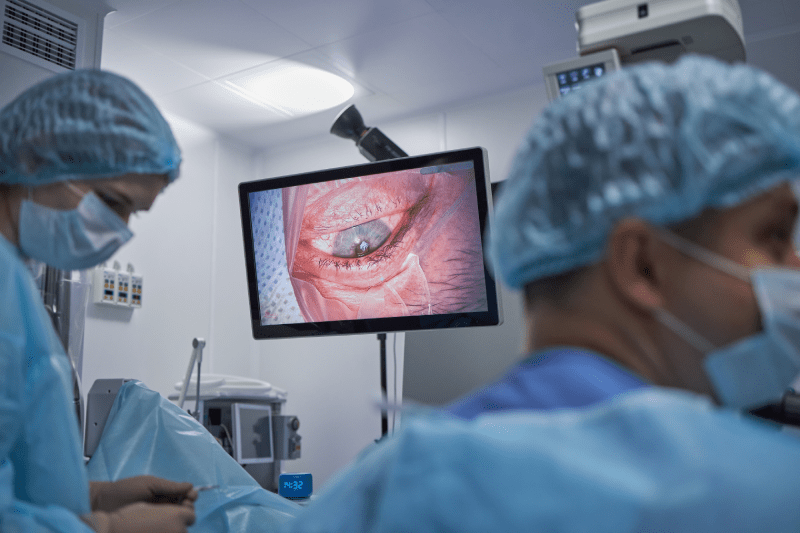
What Is Included In EDOF Lens Treatment Packages?
Reliable Turkish clinics generally offer comprehensive, all-inclusive packages for international patients. These packages may include the cost of the lenses, the surgical operation, detailed pre-operative eye examinations, necessary post-operative medications/drops, VIP transfer services, and accommodation (usually in 4-5 star hotels). These services offer a level of comfort that allows the patient to focus solely on the treatment, eliminating stress and logistical issues, directing patients to receive treatment in Turkey.
Is The Guarantee Of Getting Rid Of Glasses Included In The Fee?
EDOF lens treatment aims for patients to achieve clear, glasses-free vision at far and intermediate distances, while also providing functional vision for near. After a successful surgery, over 95% of patients are usually free from dependence on glasses. Clinics generally do not offer a written “getting rid of glasses guarantee” but provide a satisfaction guarantee. If a small refractive error remains rarely, this condition can usually be corrected free of charge with an additional laser intervention (PRK/LASIK). This correction guarantee is an assurance of the treatment’s long-term success.
Is The Cost Of Astigmatism Correction Included In The Package?
Most patients also have astigmatism. EDOF lenses are produced with toric properties that can also correct astigmatism. The cost of toric lenses is somewhat higher than standard spherical lenses. The inclusion of this additional cost in the package price or the requirement for a separate fee depends on the clinic’s pricing policy and the patient’s degree of astigmatism. The use of toric lenses is mandatory for high degrees of astigmatism and is unavoidable for long-term clear vision.
Is A Fee Charged If A Second Surgical Intervention Is Necessary?
A large second surgery, such as the removal or exchange of the lens in EDOF lens treatment, is rarely needed. If a small refractive error remains after the surgery, this is usually corrected free of charge with Excimer Laser (PRK/LASIK) (touch-up). Reliable clinics generally offer this touch-up guarantee for one year after the surgery. In case of a major complication resulting from the surgery itself, the continuation of the treatment is covered by the guarantee. This assurance makes the decision to receive treatment in Turkey easier.
VAT Exemption Applied For Getting Rid Of Glasses Surgeries?
It is possible to apply Value Added Tax (VAT) exemption for medical services received by foreign patients coming to Turkey within the scope of health tourism, provided legal conditions are met. This exemption further reduces the total amount the patient will pay, providing an additional financial advantage. Clinics and intermediary institutions like Cure Holiday manage the necessary processes in compliance with legal regulations so that patients can benefit from this tax advantage. This offers an additional budget advantage for patients.
In Which Cases Does The Cost Of EDOF Lens Treatment Increase?
The cost of EDOF lens treatment increases in the following situations: 1) The necessity of a toric EDOF lens due to a high degree of astigmatism, 2) The treatment of additional eye diseases such as pre-operative glaucoma or retinal detachment, 3) The preference for premium EDOF lens brands, 4) The preference for sedation or general anesthesia option. These additional costs may be necessary to increase the safety and quality of the treatment and must be included in the budget.
What Are The Most Reliable EDOF Lens Brands?
The most trusted and preferred international EDOF lens brands on the market include premium brands such as Alcon (Vivity), Johnson & Johnson (TECNIS Symfony), and Bausch + Lomb. These lenses have long depth of focus, minimized light scattering and proven long-term clinical success. Leading clinics in Turkey use these international premium brands tailored to the patient’s eye structure and budget. Cure Holiday ensures the certified use of these brands.
How Does The Surgeon’s Experience Affect The Success Rate?
EDOF lens surgery (Phaco) is a micro-surgical procedure requiring a high level of precision. The surgeon’s experience is vital for the correct and millimetric precision placement of the lens and the reduction of post-operative complication risk. Eye surgeons in Turkey have international levels of experience due to their high case volume. An experienced surgeon is the greatest assurance of the treatment’s permanent success and the patient’s final visual acuity and directs patients to receive treatment in Turkey.
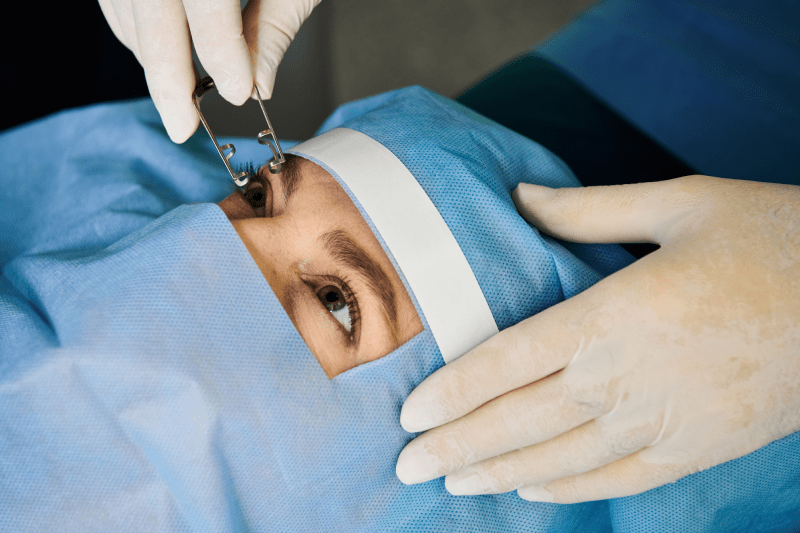
Does EDOF Lens Treatment Also Correct Cataracts?
Yes, EDOF lens treatment permanently treats cataracts along with presbyopia (near vision problem). A cataract is the clouding of the eye’s natural lens over time. In EDOF lens surgery, the natural lens, which is already cloudy, is removed and replaced with an artificial EDOF lens. This corrects both refractive errors and cataracts, ensuring the patient achieves clear vision for life and prevents future cataract formation.
How Do EDOF Lenses Work To Improve Night Vision Quality?
Unlike trifocal lenses, EDOF lenses work by dividing light less and creating a longer depth of focus. This approach aims to minimize the effect of light scattering (halo or glare) seen during night driving or in low light. EDOF lenses are preferred especially for their high night vision comfort and contrast sensitivity. The most suitable lens choice is made by evaluating the patient’s lifestyle and night vision expectations before the surgery.
Is EDOF Lens Treatment Permanent And What Is Its Lifespan?
EDOF lenses are artificial lenses permanently placed inside the eye and are designed to last for a lifetime. The lens material (usually acrylic or silicone) is biocompatible and does not degrade or cloud over time. Once these lenses are placed, it means the patient will not experience cataracts or presbyopia problems again. This offers a permanent solution in terms of getting rid of glasses and improving the quality of life.
In Which Cases Is An EDOF Lens Preferred Over A Trifocal Or Standard Lens?
If the patient prioritizes night vision comfort and minimal light scattering risk, EDOF lenses are preferred over Trifocal lenses. However, if the patient has the highest expectation for reading very small print without glasses at especially near distance (30-40 cm), Trifocal lenses may be more suitable. In cases such as serious retinal diseases or glaucoma, the doctor may recommend the safer standard monofocal lenses. The patient’s lifestyle is critical in making this decision.
Why Is The Pre-Operative Biometry Test Of Critical Importance?
The biometry test is the most critical stage of EDOF lens surgery. This test measures the patient’s eye axis, corneal curvature, and eye length with millimetric precision. The data obtained is used to calculate the exact power (dioptre) of the artificial lens to be placed inside the eye. An incorrect biometry measurement can lead to the selection of the wrong lens power and ultimately, the failure of the surgery. Expert clinics must use state-of-the-art devices for this measurement.
How Many Days Should The Post-Operative Check-Ups Last In Turkey?
The initial post-operative checks are critical. It is recommended that the patient stays in Turkey for an average of 3 to 4 days. This duration is necessary for the surgical operation, one night of rest, and most importantly, the mandatory first-day check-up after the surgery. The first-day check-up is vital for the surgeon to check visual acuity and the correct position of the lens. Long-term checks are usually performed at 1 week, 1 month, and 6 months.
What Is The Biggest Advantage Of EDOF Lenses Over Trifocal Lenses?
The biggest advantage of EDOF lenses is the lower risk of light scattering (halo/glare) compared to Trifocal lenses and the fact that the vision is more continuous (giving the feeling of a single-focus lens). While trifocal lenses divide light by creating three different focal points, EDOF lenses create a wider single focal region. This means more comfortable night vision and less adaptation time, especially for professional drivers or those who work a lot at night.
How Is Visual Quality Affected If Astigmatism Correction Is Not Performed?
If the patient has significant astigmatism in their eye during EDOF lens treatment and this defect is not corrected using a toric lens, the final visual acuity achieved significantly decreases. Astigmatism prevents light from focusing at a single point on the retina and disrupts the focus depth advantage of the lens. Therefore, physicians strongly recommend the toric EDOF lens option to patients with astigmatism. Astigmatism correction is an indispensable step for the overall success of the treatment.
How Many Times Is It Necessary To Come To Turkey For EDOF Lens Surgery?
EDOF lens surgery is generally completed in a single trip. It is sufficient for the patient to stay in Turkey for 3 to 4 days. Tests are done on the first day, surgery on the second, and the mandatory check-up on the third. Operating on both eyes sequentially (on the same day or the next day) is a common practice. This short travel period prevents patients from taking a long leave from work and is a major logistical advantage for those deciding to receive treatment in Turkey.
How Is Lens And Glasses Use Regulated Before Surgery?
For detailed and accurate measurements to be taken before the surgery, patients using contact lenses must stop using them at least 1-2 weeks before the surgery and only use glasses. Glasses use is stopped immediately before the surgery. This preparation ensures that the cornea returns to its natural shape and that the calculation of the lens power is error-free. The accurate outcome of the corneal map is vital for the success of the treatment.
Is Pain Or Discomfort Felt During The Surgery?
No, EDOF lens surgery is a completely painless procedure. The eyes are brought under local anesthesia with special drops applied before the surgery (topical anesthesia). The patient only feels sensations like bright lights or the sound of water during the surgery but does not feel any pain. The sedation (conscious sleep) option can rarely be used to relax the patient and control eye movements, which provides additional comfort.
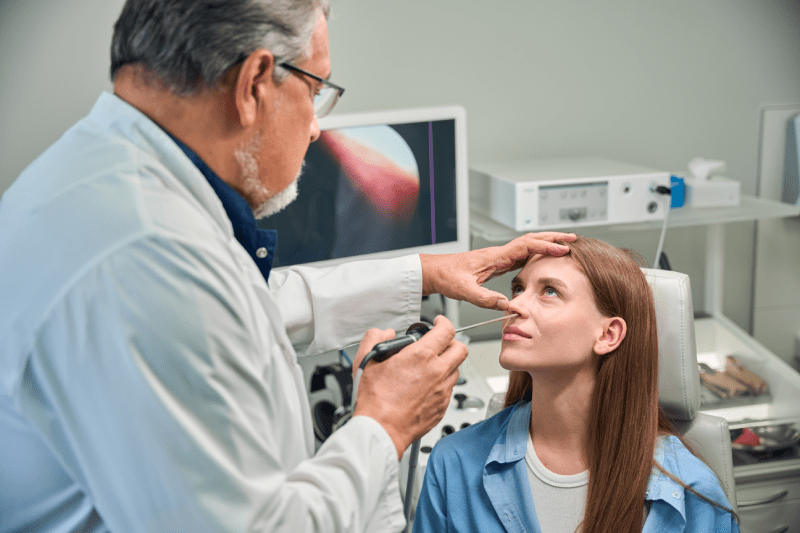
What Should Be Expected On The First Day After Surgery?
On the first day after surgery, the patient’s visual acuity increases rapidly, but slight blurring, light sensitivity, and watering are expected. The patient must wear special protective glasses or a shield to protect their eyes. The mandatory check-up is performed the day immediately following the surgery, and the surgeon checks the lens position and the recovery process. Rest and regular use of eye drops are vital on this first day.
When Is The Return To Normal Life And Driving Resumed?
The return to normal life after surgery is very fast. Patients can usually return to their daily activities such as reading and using a computer within a few days. Driving is resumed after both eyes’ visual acuity is fully clear and with the surgeon’s approval, generally within one week. EDOF lenses have high night vision comfort, so the adaptation period may be shorter than Trifocal lenses.
Which Sports And Activities Are Prohibited After Surgery?
It is important to protect the eyes from impact, water, and dirt in the first week after surgery. Water-contact sports such as swimming or sea activities and heavy sports that carry a risk of impact to the eye should generally be avoided for at least 2 weeks. Light exercise and walking can be resumed after a few days. These restrictions are necessary to minimize the risk of infection in the eye and ensure the lens position remains stable.
What Are The Most Suitable Cities For EDOF Lens Treatment In Turkey?
The most preferred and specialized cities for EDOF lens treatment in Turkey are Istanbul, Ankara, and Izmir. These cities stand out due to their hospitals with international accreditations, surgeons with high case volume, and advanced logistical facilities. Cure Holiday especially collaborates with the best eye centers in these cities, directing patients to receive treatment in Turkey.
When Is Eye Makeup And Lens Use Permitted After Surgery?
To prevent the risk of post-operative infection, eye makeup (mascara, eyeliner, shadow) and contact lens use (which will no longer be necessary) are generally prohibited for at least 2 weeks. This duration is necessary for the eye to heal completely and the surgical incision to close. Patients must also strictly avoid rubbing their eyes during this period. Adherence to these rules is vitally important for the success of the treatment.
When Is Air Travel Permitted After Surgery?
Air travel is generally permitted without any restrictions after EDOF lens surgery. Since the surgery is micro-surgical and does not significantly affect eye pressure, patients can safely fly immediately after the mandatory check-up on the day following the surgery. This allows patients to utilize their short stay in Turkey most efficiently.
How Is English Language Support Provided By The Eye Doctor?
Turkish clinics focused on health tourism employ fluent English-speaking coordinators and translators for the comfort of international patients. Institutions guarantee continuous translation support throughout the entire process, from the first contact to discharge. This support ensures that the patient fully understands medical instructions and the treatment process proceeds stress-free.
In Which Cases Is EDOF Lens Treatment Not Applicable?
EDOF lens treatment is not applicable to patients with eye diseases such as advanced retinal diseases (macular degeneration), severe glaucoma, uncontrolled diabetes, or severe corneal irregularities. The eye must be healthy for EDOF lenses to provide their full optical benefit. The surgeon minimizes these risks by checking the patient’s suitability with detailed tests before the surgery.
Do EDOF Lenses Cause Lens Dislocation In The Long Term?
No, EDOF lenses are placed inside the lens capsule and generally remain stable in the eye for life. The risk of lens dislocation is very low due to the quality of the surgical technique. The surgeon’s high experience and accurate lens measurement minimize this risk. Situations like impact to the eye or rubbing the eye after surgery can increase this risk, so protective measures in the first week are critically important.
Is The Need For Glasses Completely Eliminated In EDOF Lens Treatment In The Future?
EDOF lenses provide excellent clarity at far and intermediate distances, but they may not provide vision as sharp as Trifocal lenses at very near distance (e.g., 30 cm and below). Some patients may need low-power reading glasses for reading very small print in dim light. However, dependence on glasses in general daily life, computer use, and phone use is largely eliminated.
How Do Chronic Diseases Affect The Treatment Price Before Surgery?
Treatment of chronic diseases (uncontrolled diabetes, thyroid issues) before surgery is mandatory to reduce surgical risks. The cost of these additional treatments (medication adjustment, extra consultations) is not included in the EDOF lens package and constitutes a separate cost. The surgeon will request the patient’s general health status to be fully stabilized for the surgery to be successful.
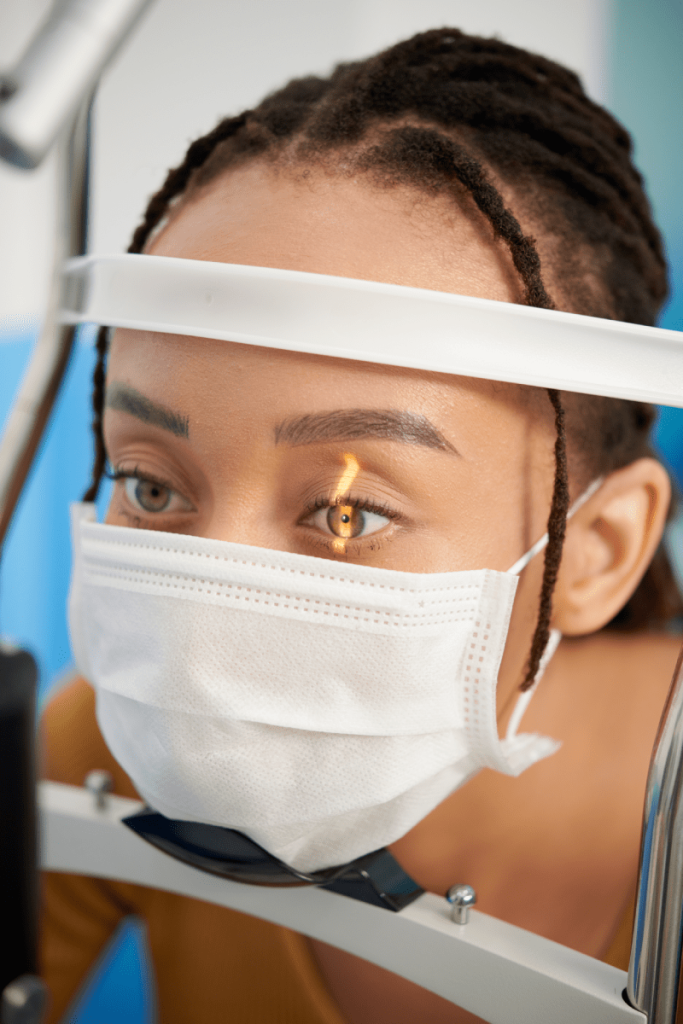
How Long Is The LASIK Correction Guarantee Valid?
The LASIK or PRK correction guarantee applied for small refractive errors that rarely remain after EDOF lens treatment is generally valid for one year. This guarantee is offered by the clinic to ensure the patient’s long-term satisfaction. Correction is done free of charge during this period; however, interventions outside this period may be subject to a fee.
Are Long-Term Check-Up Appointments Charged After EDOF Lens Treatment?
The recommended periodic check-up appointments (6 months/1 year) to ensure the long-term success of EDOF lens treatment are generally free of charge for one year. The patient is only obliged to cover the travel expenses (airfare). These checks are important for monitoring the lens stability and eye health. Cure Holiday assists patients in coordinating these checks.
How Long Does Post-Operative Dry Eye Persist?
Post-operative dry eye is a temporary condition that generally decreases and disappears within a few weeks to a few months. EDOF lens surgery carries a lower risk of dry eyes compared to LASIK, as it affects the corneal nerves minimally. Physicians prescribe plenty of artificial tears to manage this condition. Permanence is very rare, and additional treatment is applied in cases of advanced dry eye.
Is There A Risk Of Cataract Development In EDOF Lens Treatment In The Future?
No, since the patient’s natural lens is completely removed and replaced with an artificial lens in EDOF lens treatment, the risk of cataract development after the treatment is zero. This is because cataracts are a disease that occurs due to the aging of the eye’s natural lens. This is one of the biggest pieces of evidence that EDOF lens treatment is a permanent solution for life.
Why Should Turkey Be Preferred For Getting Rid Of Glasses?
International accredited hospitals, experienced surgeons, state-of-the-art devices, and up to 50-70% cost advantage make Turkey the most ideal address for getting rid of glasses. Patients, with professional support like Cure Holiday, both receive high-quality treatment and benefit from a significant budget advantage by experiencing the comfort of a holiday. This encourages patients to confidently receive treatment in Turkey.
